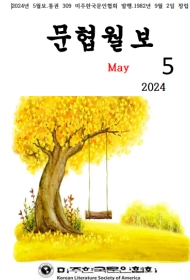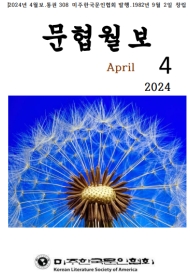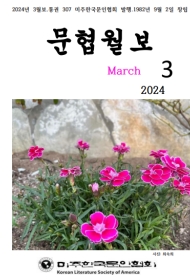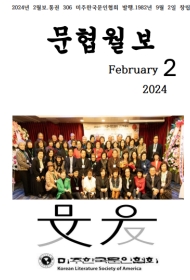"The Ingenious Hidalgo Don Quixote de La Mancha"
=================================================
Wolran Kim
November 2013
Cervantes is clearly a successful writer, because there is no one who doesn’t know Don Quixote despite not knowing Cervantes after 400 years. I personally do not like cartoon fashions, comics, visionaries, or wild ideas such as the author mentioning, “most ingenious one that could ever be imagined” (3). However, I became curious a little after I read a warning from someone, “Do not say anything before you read the original Don Quixote.”
Quixote is a character who was reincarnated to punish vulgar fictions of chivalry, and mocked the corruption of human nature and the world through sharp satire and humor. Cervantes suggests that human society will be criticized by Quixote’s craziness, not by the existing overused liberty, equality, or justice in the prologue. Quixote’s character of the “unpredictable child” (3) makes readers imagine the innocent, purity, or lack of sophistication.
“Idle Reader” (3), we indeed may be foolish readers who are accustomed only to common criticism and imagination. Idle could mean living inside the frame of the existing system without deviating from a horse-like sense. The author says that the inner human struggling in the gap between ideals and reality will be raked up by the irony of Quixote; “My book will be lacking in all of this because I have no citations for the margins, nor any notes to put at the end” (4), and “this” is a common sense that idle readers are accustomed to, such are the maxims of Aristotle, Plato, the Holy Scripture, and St. Thomases. Life in reality does not require citations.
“~such a book as one might dream up while in jail” (3). Cervantes thought about Quixote while he was in jail. Quixote must be his ideal hope for the future in his terrible situation and tribulations. Quixote is an expression of his strong will and courage. Prisoners in jail always miss the outside world, because a free life on the outside will never become their reality; maybe only in the future. Imagination is always fantastic like a dream of a prisoner despite reality being bleak. The Ingenious Hidalgo Don Quixote is the same as the outside world to a prisoner of reality despite it is unrealistic or impractical ideals.
Cervantes tries to protect his novel from ignorant and unjust criticism through “DEDICATED TO THE DUKE OF BEJAR” by using all his strength in the cover page. The author secretly forces readers to think of Quixote not as a fictional character, but an actual figure that lives his own life according to the author’s dream or imagination. Quixote might appear as a crazy man, but the author just records his life story. “I had to write for the history of Don Quixote” (4); history is a fact not a fiction. Quixote will express the passion of chivalry directly in reality. “Fantasy filled his mind from everything that he read in the books—enchantments, quarrels, battles, challenges, wounds, flirtations, love affairs, misfortunes, and impossible nonsense” (19).
“But although I seem to be Don Quixote’s father, I am just his stepfather” (3). Usually to artists, their works are considered their children. Quixote is the same as Cervantes’ child, but the author also respects Quixote’s independence and autonomy by saying he is Quixote’s stepfather. Here, the author is just a follower of Quixote who never allows for the author’s intervention. The artist writes a novel with a pen and paper or a keyboard and a monitor today; but Cervantes writes the life of one person using Quixote as a pen, and Quixote lives his life in the real world, not on paper. He is a hero of chivalry who comes alive from fiction. Quixote was born for Cervantes, and Cervantes was born for Quixote.
A quixotic person is one who lives an extremely visionary life, but never knows abandonment. This personality is always controversial between courage and recklessness, but it also deserves praise in the cold and selfish reality, especially in the modern world. The value of Quixote is not low regarding the realization of ideals; it is not just a fun novel.
People often express relations between Don Quixote and Hamlet. They are published in the same year ironically. Quixote is not seen as merely a sad knight, and is also far from egoism. He is a person who practices a great spirit with a humble heart, patience, and steadfast belief, without hesitation and fear. He never cares about the dual disasters and adverse effects of his rashness. He also deals with people’s ridicule and persecution. On the contrary, Hamlet is an isolated skeptic and egoistic person. To Hamlet, ego is nothing because he cannot even trust himself. He always goes back to the starting point without any answers after contemplation and wandering. There is no sacrifice for others to him while entrapped in the inner world.
“I’m coming out now” (4), Cervantes comes out into the world through Don Quixote, in spite of the advice, “be fearful of the opinion of that ancient judge they call the public (4),” “after so many years of sleeping in the silence of oblivion (4),” as the name of the book is chivalry. We have to fix our attention and “be sure don’t vex the simpleton (8)” as is the author’s wish from his prologue. However, I do not know that I want to thank Cervantes because I have not read yet.
=================================================
Wolran Kim
November 2013
Cervantes is clearly a successful writer, because there is no one who doesn’t know Don Quixote despite not knowing Cervantes after 400 years. I personally do not like cartoon fashions, comics, visionaries, or wild ideas such as the author mentioning, “most ingenious one that could ever be imagined” (3). However, I became curious a little after I read a warning from someone, “Do not say anything before you read the original Don Quixote.”
Quixote is a character who was reincarnated to punish vulgar fictions of chivalry, and mocked the corruption of human nature and the world through sharp satire and humor. Cervantes suggests that human society will be criticized by Quixote’s craziness, not by the existing overused liberty, equality, or justice in the prologue. Quixote’s character of the “unpredictable child” (3) makes readers imagine the innocent, purity, or lack of sophistication.
“Idle Reader” (3), we indeed may be foolish readers who are accustomed only to common criticism and imagination. Idle could mean living inside the frame of the existing system without deviating from a horse-like sense. The author says that the inner human struggling in the gap between ideals and reality will be raked up by the irony of Quixote; “My book will be lacking in all of this because I have no citations for the margins, nor any notes to put at the end” (4), and “this” is a common sense that idle readers are accustomed to, such are the maxims of Aristotle, Plato, the Holy Scripture, and St. Thomases. Life in reality does not require citations.
“~such a book as one might dream up while in jail” (3). Cervantes thought about Quixote while he was in jail. Quixote must be his ideal hope for the future in his terrible situation and tribulations. Quixote is an expression of his strong will and courage. Prisoners in jail always miss the outside world, because a free life on the outside will never become their reality; maybe only in the future. Imagination is always fantastic like a dream of a prisoner despite reality being bleak. The Ingenious Hidalgo Don Quixote is the same as the outside world to a prisoner of reality despite it is unrealistic or impractical ideals.
Cervantes tries to protect his novel from ignorant and unjust criticism through “DEDICATED TO THE DUKE OF BEJAR” by using all his strength in the cover page. The author secretly forces readers to think of Quixote not as a fictional character, but an actual figure that lives his own life according to the author’s dream or imagination. Quixote might appear as a crazy man, but the author just records his life story. “I had to write for the history of Don Quixote” (4); history is a fact not a fiction. Quixote will express the passion of chivalry directly in reality. “Fantasy filled his mind from everything that he read in the books—enchantments, quarrels, battles, challenges, wounds, flirtations, love affairs, misfortunes, and impossible nonsense” (19).
“But although I seem to be Don Quixote’s father, I am just his stepfather” (3). Usually to artists, their works are considered their children. Quixote is the same as Cervantes’ child, but the author also respects Quixote’s independence and autonomy by saying he is Quixote’s stepfather. Here, the author is just a follower of Quixote who never allows for the author’s intervention. The artist writes a novel with a pen and paper or a keyboard and a monitor today; but Cervantes writes the life of one person using Quixote as a pen, and Quixote lives his life in the real world, not on paper. He is a hero of chivalry who comes alive from fiction. Quixote was born for Cervantes, and Cervantes was born for Quixote.
A quixotic person is one who lives an extremely visionary life, but never knows abandonment. This personality is always controversial between courage and recklessness, but it also deserves praise in the cold and selfish reality, especially in the modern world. The value of Quixote is not low regarding the realization of ideals; it is not just a fun novel.
People often express relations between Don Quixote and Hamlet. They are published in the same year ironically. Quixote is not seen as merely a sad knight, and is also far from egoism. He is a person who practices a great spirit with a humble heart, patience, and steadfast belief, without hesitation and fear. He never cares about the dual disasters and adverse effects of his rashness. He also deals with people’s ridicule and persecution. On the contrary, Hamlet is an isolated skeptic and egoistic person. To Hamlet, ego is nothing because he cannot even trust himself. He always goes back to the starting point without any answers after contemplation and wandering. There is no sacrifice for others to him while entrapped in the inner world.
“I’m coming out now” (4), Cervantes comes out into the world through Don Quixote, in spite of the advice, “be fearful of the opinion of that ancient judge they call the public (4),” “after so many years of sleeping in the silence of oblivion (4),” as the name of the book is chivalry. We have to fix our attention and “be sure don’t vex the simpleton (8)” as is the author’s wish from his prologue. However, I do not know that I want to thank Cervantes because I have not read yet.













